Nigeria is in the grip of one of the most turbulent security periods in its post-independence history. Terrorism, mass abductions, banditry and targeted attacks on civilians have become routine. Schoolchildren, farmers, worshippers and rural communities are now soft targets in what increasingly resembles a nationwide low-intensity war.
For more than 15 years, despite repeated promises, changes in service chiefs and billions spent on defence, the security situation has not improved; in many respects it has deteriorated. Large parts of the North-East and North-West have been repeatedly attacked; communities in the Middle Belt live under constant threat; and increasingly, schools are being emptied by fear rather than by graduation.
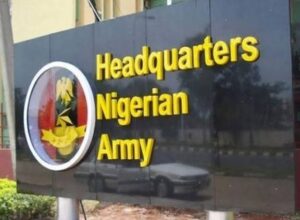
This raises a fundamental question:
> Do those at the top of Nigeria’s defence architecture have the background and expertise required to lead a modern war against terrorism?
Who Is Leading the War – and With What Credentials?
Today, Nigeria has two Ministers of Defence:
Mohammed Badaru Abubakar – a career politician and former governor of Jigawa State.
Bello Matawalle – Minister of State for Defence, also a career politician and former teacher before entering politics and later serving as governor of Zamfara State.

Neither comes from a professional military, counter-insurgency or strategic security background. Their experience is overwhelmingly political and administrative.
The National Security Adviser (NSA), Nuhu Ribadu, is a retired police officer and lawyer, best known for his role as pioneer chairman of the EFCC and for a long political career, including presidential and gubernatorial runs. He is also the first non-military officer to serve as NSA since 1999.
These are all accomplished men in their own spheres. But the core concern from many Nigerians and security experts is simple and brutal:
> How do career politicians and an ex-policeman, without direct warfighting, counter-insurgency or campaign-level command experience, credibly lead a complex, multi-front war against terrorism—and command the full confidence of battle-hardened service chiefs?
The issue here is not tribe or religion; it is professional fit-for-purpose.
Defining the Job: What Defence Leadership Is Supposed to Be
In serious security systems, the Defence Minister and NSA are expected to:
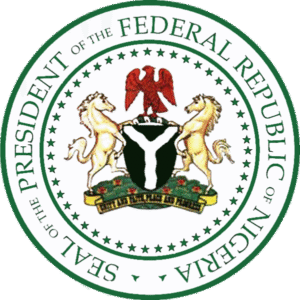
Shape national military and security doctrine;
Understand operational realities at campaign level;
Coordinate joint operations and intelligence;
Translate political objectives into viable military strategy;
Speak the language of generals, not just of politicians;
Engage international security partners as peers;
Drive reform in logistics, training, equipment and morale.
The Chief of Defence Staff and Service Chiefs can only be as effective as the strategic leadership above them. When those at the top lack the necessary technical depth, the result is often:
Slow, confused responses;
Poor inter-service coordination;
Weak intelligence–operations linkage;
Cosmetic reforms instead of structural change.
That is what Nigerians are living with today.
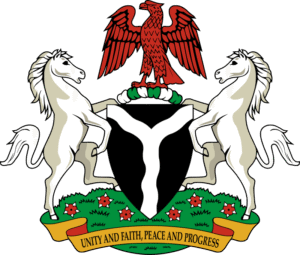
International Concern and the Emerging US–Nigeria Task Force
The United States has now moved from quiet concern to open structured engagement. The proposed joint US–Nigeria task force on persecution and insecurity is, in effect, an audit of Nigeria’s seriousness: its data, its strategies, its leadership and its political will.
Washington’s experience in Iraq, Afghanistan, Colombia, the Sahel and elsewhere shows that it prefers to work with technically credible, professional counterparts who understand modern warfare, intelligence and inter-agency coordination. If Nigeria’s top security faces are seen as primarily political, not professional, it will quietly shape the depth and quality of support the country receives.
Many Nigerians believe—and it is a reasonable inference—that any honest joint review of Nigeria’s security architecture will recommend replacing some political appointees at the top with retired generals and seasoned security professionals if meaningful progress is to be made.
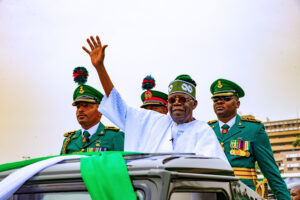
The Argument for Retired Generals and Security Professionals
Other countries in similar or worse situations have gone down this road:
Colombia brought experienced military professionals into strategic roles during the FARC war.

Sri Lanka reconfigured its defence leadership with battle-tested officers to end its civil war.
Turkey and Israel regularly rely on retired generals for top policy and strategic security roles.
Nigeria is not short of such people. It has retired generals and senior officers who:
Have commanded in real theatres of war;
Understand insurgency, terrain and tactics;
Have trained with foreign militaries;
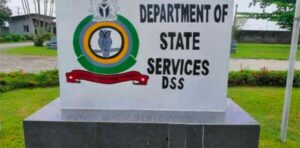
Know where doctrine, logistics and morale are broken;
Can speak confidently to US, EU and AU security counterparts.
Yet many of these capable hands are outside the current architecture—excluded by omission or by deliberate political design—while the country bleeds.
If This Were a Mature Democracy…
In many developed democracies, ministers and national security chiefs resign when they clearly fail to stem a worsening crisis. In Nigeria, they rarely do. They wait to be removed—if at all.

After:
Thousands killed,
Endless school abductions,
Entire regions living under fear,
it would not be unreasonable for the Commander-in-Chief to conclude that the current arrangement at the top has failed, and that new, more experienced hands are urgently needed.
Urgent Steps the President Must Take Now
Mr President, the situation has moved beyond rhetoric. Concrete actions are required:
■ Restructure the top of the security architecture
Replace some political appointees in key defence policy roles with experienced retired generals and seasoned security professionals who understand war, not just politics.
■ Appoint a National Security Adviser with deep, demonstrable security credentials
The NSA should be someone with campaign-level experience in counter-insurgency, intelligence and joint operations—respected by both Nigerian and international security communities.
■ Establish an independent Crisis Management Strategic Team and Think Tank
Create a small, high-calibre unit reporting directly to the President, outside normal ministries and agencies, to drive results.
Composition: elite Nigerians drawn from the military, intelligence, diplomacy, academia, civil society, business and the media.
Role:
Develop integrated national security strategies;
Provide real-time analysis and options during crises;
Coordinate messaging with trusted media;
Monitor implementation by MDAs and flag failures;
Serve as a bridge between government, experts and credible advocacy groups.
This body must be insulated from routine bureaucracy and patronage so it can tell the President the truth and deliver measurable outcomes.
■ Make competence—not political loyalty—the core criterion
The war against terrorism is a technical war. It must be led by those who know what they are doing, not those who simply know whom they are close to.
■ Align fully with the incoming US–Nigeria task force
Present a reformed, credible team to international partners so that Nigeria is taken seriously and can leverage global support effectively.

A Direct Appeal to the President
Mr President,
Nigeria is bleeding. The war against terrorism, banditry and mass abductions is not being won. International respect is eroding. Domestic confidence is collapsing.
You cannot fight a 21st-century war with 20th-century structures—and political CVs where war-fighting expertise is required.
Restructuring the security architecture and setting up an independent, expert crisis management team are no longer optional. They are matters of national survival.
Every day of delay costs lives, territory and credibility.
History will record whether you acted boldly in time—or watched as an avoidable disaster hardened into a permanent national wound.
The National Patriots.




